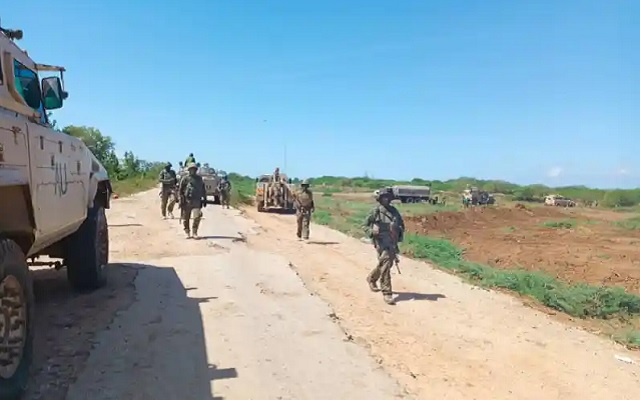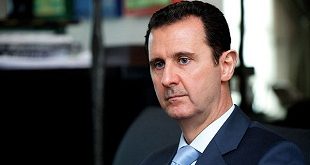
Why UPDF, the AU and Western powers should let Al Shabab take over power in Somalia
THE LAST WORD | Andrew M. Mwenda | Last week, Al Shabab militants made a devastating attack on a UPDF base in Somalia. They claimed to have killed 138 of our soldiers and taken many more hostage. The UPDF has not yet made public the number of dead, injured and missing. But whatever the details of this tragedy, this is a wake-up call to Uganda to pull out of that troubled country. We have been in Somalia for 16 years and it hard to see any fundamental difference we have made to create a stable political order there. On the contrary, it seems our presence has stifled the evolution of a more militarily strong political group able to wrestle control of the whole country from myriad clan militias. Yet such a group is the only one that can secure effective control and thus reestablish the Somali state.
The problem of Somalia is primarily an internal political one. Somali elites need to evolve some minimum political consensus on how to create a stable political order through a negotiated settlement. The best outsiders can do is facilitate this internal political dialogue among Somali elites. The other solution would be to leave Somalis to fight among each other until one side secures a decisive military victory or all sides get exhausted by fighting and find mutual accommodation more profitable than further combat. In this case, Somalia needs a strong-man ahead of a powerful organisation that can impose order on that country.
President Yoweri Museveni and his planners think that, with more money, better organisation, improved training, advanced military equipment, limited corruption and greater vigilance, UPDF can avoid the disaster that befell it last week. This is illusory. There is no way any army in the world can avoid a surprise attack from enemies fighting on their home turf over such a prolonged period. Perhaps Museveni and his planners should learn from the American experience in its many wars abroad ranging from Vietnam to Afghanistan and Iraq, or the Israelis in Lebanon. In all these cases, the world’s best militaries armed with the best technologies of surveillance were unable to avoid surprise attacks from their enemies.
It does not matter how well trained an army is, how high its morale, or how it is financed and equipped. Any foreign military occupation faces serious disadvantages. Foreigners can never penetrate a society deeply enough to gather all the necessary intelligence needed to ensure total safety. Neither can they be free of their biases and prejudices about the society they occupy. And prejudice leads to misunderstanding and/or bad judgements. So, the risk of a successful surprise attack is in-built in the act of occupying another country for many years. You can be vigilant for long and go without any incident. However, the local militias need to succeed only once in five years to surprise you with a devastating attack.
Uganda and all those involved in Somalia should learn a lesson from the USA-NATO occupation of Afghanistan, which lasted 20 years. The Americans have the best-trained, best-organised, best-equipped, best-motivated and best-led army in the world – or so they claim. They spent $2.1 trillion dollars trying to “rebuild” Afghanistan; $800,000 to train and equip an Afghan army of 300,000. Arrayed against them were the Taliban – poorly-trained, poorly-equipped, poorly-financed and poorly-led (or so we were led to believe). But after 20 years, the Americans retreated from Afghanistan and left the Taliban, whom they specifically went to kick out of power, to take over the country. All the fears of blow back have not come to pass. Alarmist claims that “Islamic militants” want to take over the world and establish a caliphate are exactly that – alarmist propaganda meant to sustain America’s endless wars.
UPDF can send more troops, more equipment and increase vigilance. It can even get the most advance surveillance technologies in the world to monitor Al Shabab. But it will never defeat the Al Shabab even in the next 100 years. We need to stop these Western-driven judgements of Al Shabab as a terrorist organisation, Islamic extremists or radical militants. These judgements make it difficult to see Al Shabab for what it is – a political movement with political objectives using Islam as a rallying cry. America has its ultra-Christian right in its politics. No one sees its religious roots a reason to exclude it from participating in the nation’s politics. By labelling Al Shabab terrorist, we have lost the opportunity to work with them to recreate the Somali state.
One can argue that the Christian right in America organises peaceably while Al Shabab organises and acts violently. First, this would be historically incorrect. For many decades, right wing white supremacist movements in America have employed terror to get their way, attacking and bombing black churches and synagogues. At no time did the USA declare them terrorist, persecute them and exclude them from political life. The idea of militant political Islam violent enough to be totally excluded from politics is a Western propaganda tool. Violent movements are products of occupation. Ending occupation is the solution. The Taliban has been defined the same way but America accepted its mistake and left them to take over the country.
Together with the Europeans and the Americans, UPDF has spent years training a national army for Somalia. More than a decade later, there is little to show for it. On the contrary, most of those trained in Uganda to form the national army desert immediately they go home and return to their clans and sub clans – or join Al Shabab. Essentially, we have been training and arming the very enemy we are fighting. Even those who do not desert have proven incapable of fighting. A well-trained, well-equipped and relatively well-paid battalion of 736 national army troops gets scattered by 30 poorly armed, poorly trained and unpaid Al Shabab militants.
Every army needs a cause to fight. Al Shabab has one. The national army does not. And that makes all the difference. Western notions that to solve the problems of Somalia requires liberal democracy: a free press, free, fair and regular multiparty elections and a vibrant civil society are fanciful. Somalia needs order – the ability of the state to gain and monopolise the use of violence. It seems to me that only Al Shabab has the capacity to ensure that. We should therefore leave Somalia and let Al Shabab take over like the Americans did with the Taliban in Afghanistan.
*****
 amwenda@independent.co.ug
amwenda@independent.co.ug
 The Independent Uganda: You get the Truth we Pay the Price
The Independent Uganda: You get the Truth we Pay the Price



Everything is possible
How I wish Mwenda and other social scientists would do a study on why countries that change governments through coup d’etat mostly turn out to be unstable long after the dictators have been kicked out in the name of democracy. Be it Somalia, Libya, Sudan, Central African republic, Congo DRC and the many volatile west african states. Messrs Siad Barre, Gadaffi, Mobutu, Bashir etc were leaders of stable and functional states. Malevolent leaders through passage of time turn out benevolent nationalists hence the inevitable growth of statehood. I would hate to think of what would befall the likes of Rwanda and Uganda should the similar scenario again revist!
I think that Libya didn’t change government through a coup but rather through foreign intervention by the West. The Ugandan example fits exactly into Mwenda’s point: The NRA rebels faced off with government forces until they captured power and ushered in a peaceful political order that we enjoy today. This is what Somalia needs to go through. Mwenda’s point is, therefore, fundamental.
Since 2007 when 🇪🇹 ENDF entered Mogadishu & in 2013 🇰🇪 KDF, with a contingents of 🇺🇬 UPDF & 🇧🇮 FDNB, though lately some military successes have been achieved, Alshabab hasn’t been completely defeated & still they occupy large swaths in southern Somalia. Also, when you look at number of soldiers trained since then that is close to 20K, why its so difficult for Somalia govt to defeat Alshabab. Because, they don’t wanted it, as it allows them to accumulate wealth & political power. Aid provided by the donor nations is also a major contributing factor in prolonging the conflict as both sides are benefitingfrom it. The west are not sincere about bringing peace in Somalia as it serves their economic as well as political agenda & the fact they blundering Somalia fishing resources. This fight against extremist isn’t different than one in Afghanistan. The question is, why west isn’t pushing for Alshabab & Somalia govt to negotiate. You can’t defeat fighters that are more dedicated, disciplined & willing to die for their cause in their home truf. Also, have a strong belief system that they are defending from foreign who wants to change it..
It is clear that the Western countries that are said to be supporting the Somali government in its war against Al-Shabaab are the same ones that are imposing an arms embargo on it for more than thirty years. So the question here is how does the government overcome an enemy which it is not superior to it with weapons?
It is a war that they wanted to continue until the power of the Somali people fails/collapses and a small handful remain in the arena that do not mind to be controlled and are ready to obey the orders of the occupying power, whose first and final goal is to exploit the country’s wealth and resources without accountability or supervision.
If these powers are meant truly by defeating Al-shabaab let them lift the army embargo and allow the government to import and attain heavy weapons.
Otherwise we are running in an empty circle.
It is clear that the Western countries that are said to be supporting the Somali government in its war against Al-Shabaab are the same ones that are imposing an arms embargo on it for more than thirty years. So the question here is how does the government overcome an enemy which it is not superior to it with weapons?
It is a war that they wanted to continue until the power of the Somali people fails/collapses and a small handful remain in the arena that do not mind to be controlled and are ready to obey the orders of the occupying power, whose first and final goal is to exploit the country’s wealth and resources without accountability or supervision.
If these powers are meant truly by defeating Al-shabaab let them lift the army embargo and allow the government to import and attain heavy weapons.
Otherwise we will be blaming the Somali government for not defeating a small terrorist group and at the same time shall be remain running in an empty circle, because it is not logic to overcome or defeat someone whom you are fighting him with the same weapons.
1.ECOMIG,AMISOM,Muslim brotherhood are humble versions of NATO there were formed to counter external aggression which is not a bad idea.
2.Terrorists dont use the conventional war tactics.their aim is to kill all non Muslims ;no one will allow such ideology to freely float in their territory.
3.Why should the world give chance to a group that has proven to them that their agenda is destruction? who even knows the CV of their group leaders?So the Lockerbie bomb victims,the Lugogo bomb victims,911 attacks,USA Embassy attacks in Kenya and TZ were great accomplishments which should be applauded?
4.The pressure that the first world exerts on the extremists is good enough we dont want them in our sight.
5.USA is a big spender i dont think they even gave a dawn when they quit Taliban territory;that psychology relief that USA was humiliated works for the primitive extremists.USA ‘s military equipment is for serious warfare not for some daft chaps who walk with explosives in pants.
6. Soldiers are martyrs.
7.Provided there is a just cause the first world will always protect her interest which is a good thing.The Somalis produce many children that if they are all indoctrinated they can actually disorganize East Africa and the horn of Africa;Indian Ocean is a major trade route and there are underground ICT cables that USA has invested in.
8.Its good that soldiers are deployed in Somalia it they weren’t they would be redundant and even think of coups.
9.Terrorism is a new war tactic and a global challenge if not addressed early it will get out of control. so the presence of AMISOM solders in Somalia is as good as internship since they are within the terrorist farm/laboratory.
If we consider the presence of Ugandan soldiers in Somalia for over fifteen years, along with their reputed training, armament, and advanced technology systems, it begs the logical question: what victories have they achieved against the enemy they intervened to liberate Somalia from? Despite the enemy’s presence in close proximity, including attacks on Somali soldiers, government members, and even in the capital Mogadishu, the Ugandan soldiers seem unable to effectively combat them. This raises concerns about their purpose in the country if they are unable to win a single battle against this group.
If Uganda’s military intervention in Somalia was genuine and aimed at assisting the Somali government in defeating this al-Qaeda-affiliated group, then why haven’t they withdrawn and returned to their homeland if victory seems unattainable? Additionally, if Uganda sincerely recognized the Somali government’s need for heavy weapons to combat the enemy, why haven’t they lobbied to lift the United Nations’ arms embargo imposed on Somalia for more than thirty years?
Based on practical experiences and observations, it has been learned that the Burundian soldiers, who are also part of the African Union mission in Somalia, demonstrate greater courage and effectiveness compared to their Ugandan counterparts in advanced stages of conflict. However, the Ugandan soldiers perceive themselves as superior to soldiers from other African countries, which is not necessarily accurate. This misplaced superiority complex further exacerbates the situation.
The Ugandan military presence, as well as the broader African presence, in Somalia is perceived by the Somali people as a heavy burden. They believe that these forces are primarily interested in accumulating generous funds from the United Nations and Western countries, rather than genuinely helping Somalia overcome its crisis. This perception is reinforced by the fact that Western countries are unwilling to lift the arms embargo on Somalia, indicating a lack of desire to see the country liberated from its ongoing conflict. Consequently, the Somali people feel trapped in a perpetual cycle of internal fighting.
In conclusion, it is unfair to solely blame the Somali government for its inability to defeat Al-Shabaab when they are equipped with ineffective and inadequate weaponry. The international community should reconsider its approach, provide meaningful assistance, and work towards lifting the arms embargo to enable Somalia to address its security challenges effectively.
Arms embargo must be lifted ASP
good post